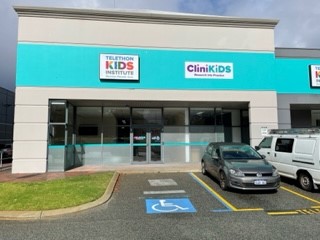Search

News & Events
Joondalup clinic open for Term 4We are excited to announce that our new Joondalup clinic will be open at the start of Term 4!
Research
Modifiable child and caregiver factors that influence community participation among children with Down syndromeTo investigate modifiable child and caregiver factors influencing community participation among children with Down syndrome.
Research
Eye Gaze in Autism Spectrum Disorder: A Review of Neural Evidence for the Eye Avoidance HypothesisReduced eye contact early in life may play a role in the developmental pathways that culminate in a diagnosis of autism spectrum disorder. However, there are contradictory theories regarding the neural mechanisms involved. According to the amygdala theory of autism, reduced eye contact results from a hypoactive amygdala that fails to flag eyes as salient. However, the eye avoidance hypothesis proposes the opposite-that amygdala hyperactivity causes eye avoidance. This review evaluated studies that measured the relationship between eye gaze and activity in the 'social brain' when viewing facial stimuli.
Research
Reporting Both Unadjusted and Adjusted Estimates Is Essential to the Interpretation of Randomized Clinical Trial Results - ReplyAndrew Matt Videos Whitehouse Watch and listen to Andrew Cooper PhD BCA Marketing, BSc Statistics and Applied Statistics, PhD Deputy Director (
Research
An investigation of a novel broad autism phenotype: increased facial masculinity among parents of children on the autism spectrumThe broad autism phenotype commonly refers to sub-clinical levels of autistic-like behaviour and cognition presented in biological relatives of autistic people. In a recent study, we reported findings suggesting that the broad autism phenotype may also be expressed in facial morphology, specifically increased facial masculinity.
Research
Continuity of temperament subgroup classifications from infancy to toddlerhood in the context of early autism traitsOur previous cross-sectional investigation (Chetcuti et al., 2020) showed that infants with autism traits could be divided into distinct subgroups based on temperament. This longitudinal study builds on this existing work by exploring the continuity of temperament subgroup classifications and their associations with behavioral/clinical phenotypic features from infancy to toddlerhood.
Research
Parental perspectives of the everyday experiences of uncertainty among young children on the autism spectrumAnxiety commonly co-occurs in autism. Exploring and understanding potential underpinning mechanisms contributing to and maintaining anxiety in the early years is important in managing anxiety. Intolerance of uncertainty (IU), a tendency to find uncertainty difficult, is a transdiagnostic mechanism contributing to anxiety, but little is known about how IU may be experienced in young children on the autism spectrum. This study investigated parental perspectives of children's experiences of uncertainty.
Research
Perceived Support Needs of School-Aged Young People on the Autism Spectrum and Their CaregiversWith increasing demands for health, disability and education services, innovative approaches can help distribute limited resources according to need. Despite an increased focus on support needs within the clinical pathway and policy landscape, the body of research knowledge on this topic is at a relatively early stage. However, there appears to be a sense of unmet support needs and dissatisfaction with the provision of required support following an autism diagnosis amongst caregivers of young people on the spectrum.
Research
The prevalence of and potential risk factors for Developmental Language Disorder at 10 years in the Raine StudyThis study sought to determine the prevalence of Developmental Language Disorder (DLD) in Australian school-aged children and associated potential risk factors for DLD at 10 years.
Research
Anesthetic Exposure During Childhood and Neurodevelopmental Outcomes: A Systematic Review and Meta-analysisClinical studies of neurodevelopmental outcomes after anesthetic exposure have evaluated a range of outcomes with mixed results.
